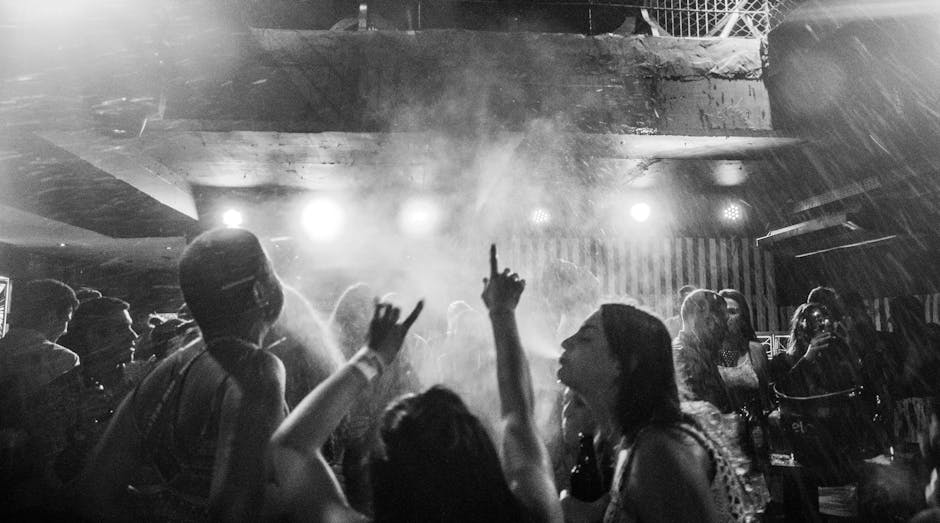The Role of Music in Social Movements
Music has always had a profound impact on society, serving as a powerful tool for communication, expression, and mobilization. Throughout history, music has played a crucial role in social movements, helping to inspire, unite, and drive change. From iconic protest songs to anthems of resilience, music has the ability to galvanize individuals and communities, giving voice to the voiceless and shaping the course of history. In this article, we will delve into the multifaceted role of music in social movements, exploring its significance, evolution, and enduring influence.
Historical Perspectives

Music has been intertwined with social movements for centuries, serving as a catalyst for change and a reflection of the times. From the spirituals sung by enslaved Africans in the United States to the protest songs of the Civil Rights Movement, music has been a vital form of resistance and resilience. During the Vietnam War, artists like Bob Dylan and Joan Baez used their music to protest the conflict and advocate for peace.
One of the most iconic examples of music’s role in social movements is the protest songs of the 1960s and 1970s. Artists like Pete Seeger, Joan Baez, and Bob Dylan wrote and performed songs that became anthems for the civil rights, anti-war, and feminist movements. These songs not only provided a soundtrack for the protests but also helped to unify and mobilize people, giving them a sense of purpose and solidarity.
Music has also been a powerful tool for marginalized communities to reclaim their identity and assert their rights. In the 1980s, hip-hop emerged as a form of expression for African American and Latino youth, addressing issues of poverty, racism, and violence. Artists like Public Enemy, N.W.A., and 2Pac used their music to shed light on social injustices and advocate for change.
The Power of Lyrics

One of the key elements of music’s impact on social movements is the power of its lyrics. Unlike other forms of communication, music has the ability to convey complex emotions and messages in a concise and memorable way. The lyrics of protest songs often contain powerful imagery, poignant statements, and calls to action that resonate with listeners on a deep level.
For example, the lyrics of Bob Dylan’s “Blowin’ in the Wind” poignantly ask a series of rhetorical questions about peace, freedom, and justice, striking a chord with audiences and challenging them to reflect on the state of the world. Similarly, Nina Simone’s “Mississippi Goddam” confronts the racism and violence faced by African Americans in the South, calling out the injustices of the time and demanding change.
Lyrics can also serve as a form of documentation, capturing the spirit and struggles of a particular moment in history. Songs like “We Shall Overcome” and “Strange Fruit” have become emblematic of the civil rights movement, encapsulating the pain, resilience, and hope of those who fought for justice and equality.
Music as a Form of Resistance

Music has long been used as a form of resistance, allowing individuals and communities to challenge oppressive systems and assert their rights. In dictatorships and authoritarian regimes, music has been a powerful tool for dissent and defiance, providing a voice for the silenced and persecuted.
One prominent example of music’s role in resistance is the Velvet Revolution in Czechoslovakia in 1989. During the peaceful protests that led to the fall of the communist regime, musicians played a crucial role in mobilizing and inspiring the crowds. The song “A Prayer for Marta” by Marta Kubiov became an anthem for the revolution, rallying people to stand up against tyranny and demand freedom.
In more recent times, music has been used to protest police brutality, racial inequality, and other social injustices. The Black Lives Matter movement, for example, has been accompanied by a wave of protest songs that speak to the pain, anger, and resilience of the Black community. Artists like Beyonc, Kendrick Lamar, and Janelle Mone have used their platform to amplify the voices of the marginalized and call for systemic change.
Music and Social Change

Music has the power to inspire people to action, mobilize communities, and effect social change. Whether through protest songs, anthems of resilience, or calls for unity, music has the ability to galvanize individuals and spark movements for justice and equality.
One of the key ways in which music contributes to social change is by raising awareness of important issues and fostering empathy and understanding. Through their lyrics and melodies, artists can shine a light on injustices, discrimination, and inequality, prompting listeners to reflect on their own beliefs and values.
Music also has the power to bring people together, transcending boundaries of race, class, and nationality. In times of crisis and uncertainty, music can serve as a unifying force, providing solace, strength, and hope to those who are struggling. Concerts, festivals, and other musical events can create a sense of community and solidarity, allowing people to come together and support each other in the face of adversity.
The Evolution of Protest Music
Protest music has evolved over time, adapting to new technologies, platforms, and social movements. While traditional protest songs like “We Shall Overcome” and “Imagine” continue to resonate with audiences, new genres and styles of music have emerged to address contemporary issues and challenges.
In the digital age, social media and streaming platforms have expanded the reach and influence of protest music, allowing artists to connect with a global audience and amplify their message. The #MeToo movement, for example, has been accompanied by a wave of music that addresses issues of sexual harassment, assault, and gender inequality, empowering survivors and challenging societal norms.
Hip-hop, in particular, has become a powerful form of protest music, addressing issues of police brutality, systemic racism, and economic inequality. Artists like Kendrick Lamar, J. Cole, and Run The Jewels have used their music to confront social injustices and advocate for change, sparking important conversations and mobilizing their fan base.
Controversies and Debates
While music has long been used as a tool for social change and activism, it has also been the subject of controversies and debates. Some critics argue that music can be overly simplistic or sentimental in its approach to complex social issues, reducing them to catchy slogans or clichs. Others contend that music can be co-opted by commercial interests or political agendas, diluting its impact and authenticity.
There is also ongoing debate about the role of artists in social movements and the responsibilities they bear as public figures. Should artists use their platform to advocate for social change, or should they remain neutral and focus solely on their art? How can artists navigate the fine line between art and activism, balancing their personal beliefs with the expectations of their audience?
These controversies and debates highlight the complexities of music’s role in social movements, underscoring the need for critical reflection and engagement with this powerful form of expression.
Common Misconceptions
One common misconception about music in social movements is that it is solely a form of entertainment or distraction, lacking in substance or impact. In reality, music has the ability to inspire, educate, and mobilize people, serving as a powerful tool for social change and activism.
Another misconception is that protest music is a relic of the past, confined to a bygone era of political upheaval and social unrest. While the protest songs of the 1960s and 1970s continue to resonate with audiences, new generations of artists are using music to address contemporary issues and challenges, adapting their sound and message to reflect the times.
Conclusion
Music has always been a powerful force for social change, inspiring people to action and uniting communities in the pursuit of justice and equality. From the protest songs of the civil rights movement to the anthems of the Black Lives Matter movement, music has the ability to galvanize individuals and spark movements for change.
As we navigate the complexities of the modern world, it is important to recognize the enduring influence of music in social movements, acknowledging its power to challenge the status quo, amplify marginalized voices, and foster empathy and understanding. By engaging with music as a form of expression and resistance, we can continue to harness its potential to effect positive change in society.
So next time you listen to a protest song or attend a rally, remember the role that music plays in shaping our world and driving social movements forward. As the saying goes, “Where words fail, music speaks.”




